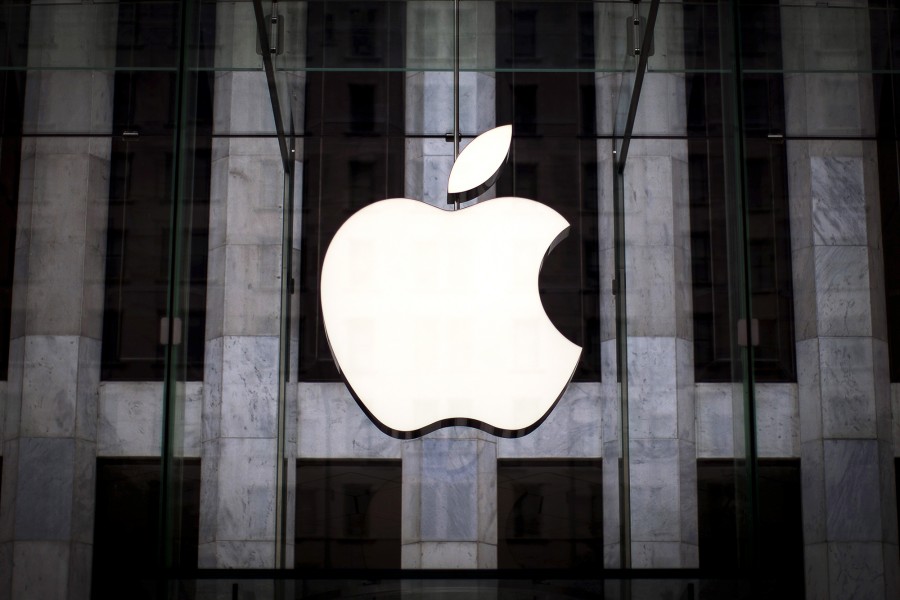Apple Should Not Give In
Our future right to privacy is at stake
February 22, 2016
Benjamin Franklin, one of the Founding Fathers of the United States, once said that “they that can give up essential liberty to obtain a little temporary safety deserve neither liberty nor safety.” His belief that the rights of the American people should not be infringed upon by the government under the pretext of “security” formed a core tenet of the Constitution and the Bill of Rights, and for good reason. However, over the past fifteen years, a steady erosion of essential civil liberties has occurred as local, state, and federal governments take advantage of new technology to access previously inaccessible information. The recent attempts of the Federal Bureau of Investigation to force Apple to create a backdoor into the iPhone is yet another example of the government overstepping its bounds in the quest to win the unwinnable “war” on terror.
The backstory to this conflict is a complicated one. All iPhones have the capability to be locked with a four to six digit passcode set by the user of the phone; almost all iPhone owners utilize this security feature. This passcode is required to enter the home screen, allowing one to view and access data from the phone itself, or to retrieve data using a computer. In essence, only those who know the passcode can access the gigabytes of texts, phone call records, emails, web browsing history, stored passwords, photographs, voice recordings, health and financial information, and so much more that are stored on the modern iPhone. Those who don’t know the passcode are out of luck, and the computer software utilized by the FBI cannot unlock it either. Even if the software could somehow enter the random passcode attempts into the iPhone digitally (it can’t, one must physically touch the screen), the iPhone will lock after repeated incorrect entries. With the correct settings enabled, the iPhone will even delete all of its data after ten incorrect entries.
In the aftermath of the San Bernardino terrorist attacks, the FBI recovered an iPhone used by one of the perpetrators, and they are keen on gaining the information stored on it – unfortunately, the passcode needed to unlock it has proven to be elusive. In order to break into the phone, the FBI has ordered Apple to circumvent the security features they spent years designing by creating an extremely vulnerable operating system with most of the security features disabled, and then downloading it onto the phone. With the new operating system installed, the FBI – or any hacker, for that matter – can easily bypass the passcode and gain access to the data stored on the phone. As many, including Apple, have recognized, the idea is ludicrous at best.
The proposal to create a backdoor to the iPhone has numerous flaws. For starters, Apple does not possess a backdoor software, as they have refused to make such a powerful weapon over the years. Once a backdoor is made, it can’t be unmade, and it would allow every iPhone ever built to be broken into by anyone who possesses the new operating system. Sure, the FBI claims that they will only use it in this isolated case, but who’s to say that they won’t use it in the next “terrorist” attack? And what if its use expands to other areas of the government and becomes a standard part of background checks? The backdoor could be given to state and local agencies so that your phone is broken into and scanned every time you get a traffic ticket, or it could end up being accidentally leaked into the public, allowing all 700 million iPhones ever built to be potentially broken into by hackers. All of this for a little bit of sensitive information that the FBI isn’t even sure exists? Even if the data on the iPhone is useful to the investigation, it simply costs too much.
The attacks at San Bernardino were horrific, and the efforts of the FBI and state and local law enforcement to protect American citizens in accordance with the government’s primary responsibility to protect its citizens from those that desire to do harm are commemorable. However, the public also has a responsibility to ensure that the government does not violate our right to privacy, as they are attempting to do now. As a nation, we must not let the urge of a little temporary safety overpower the necessity of essential liberty.


